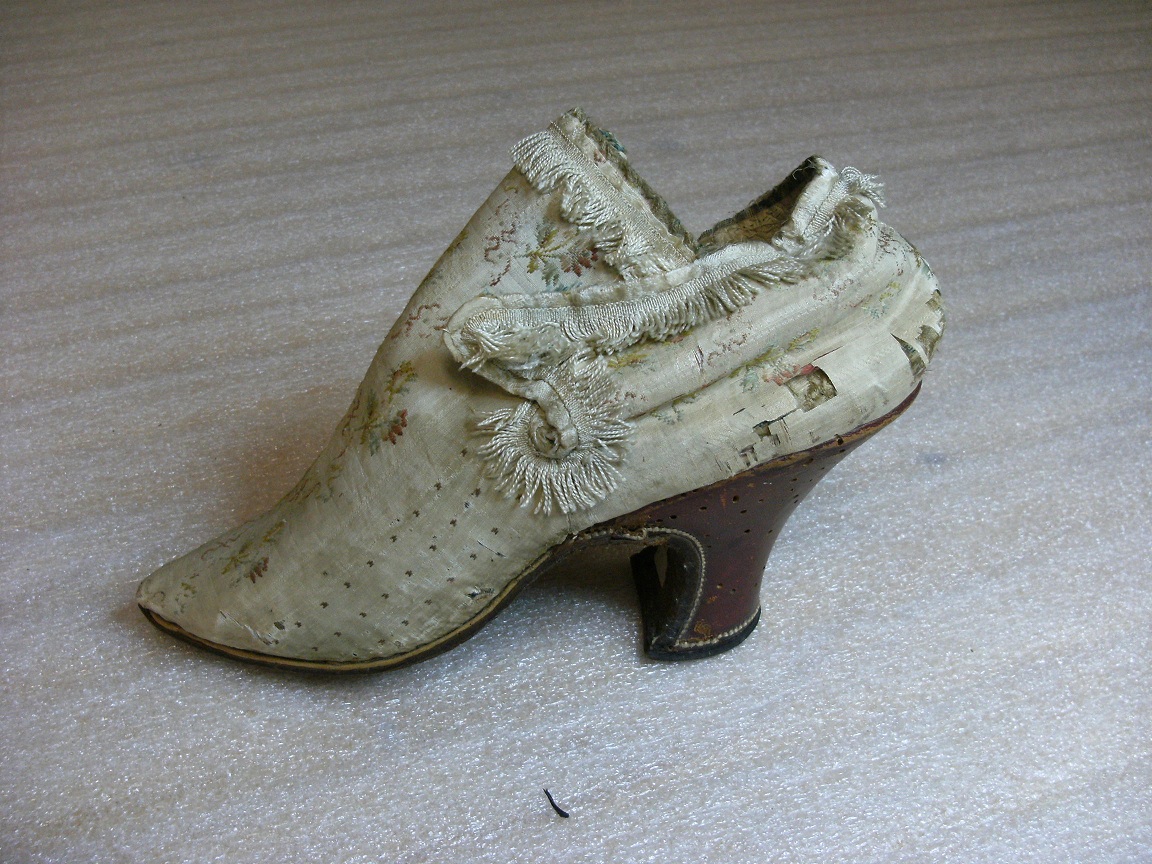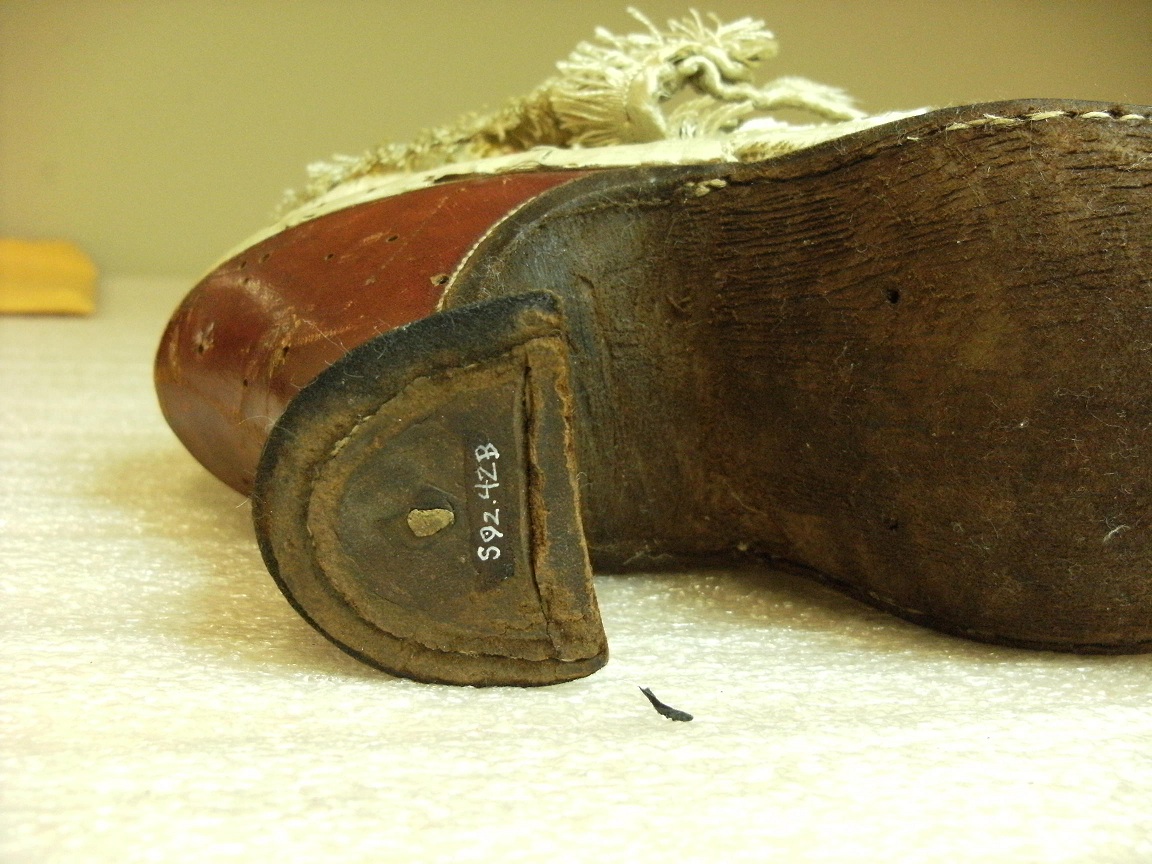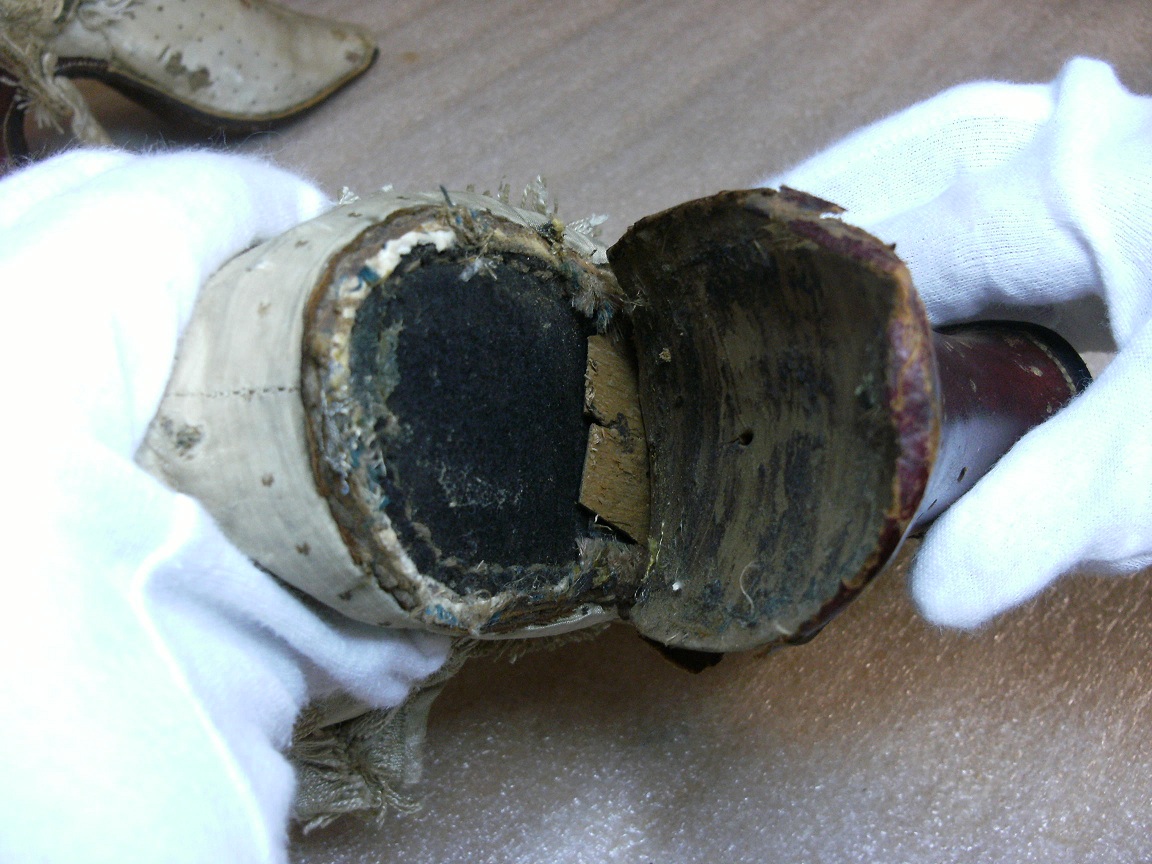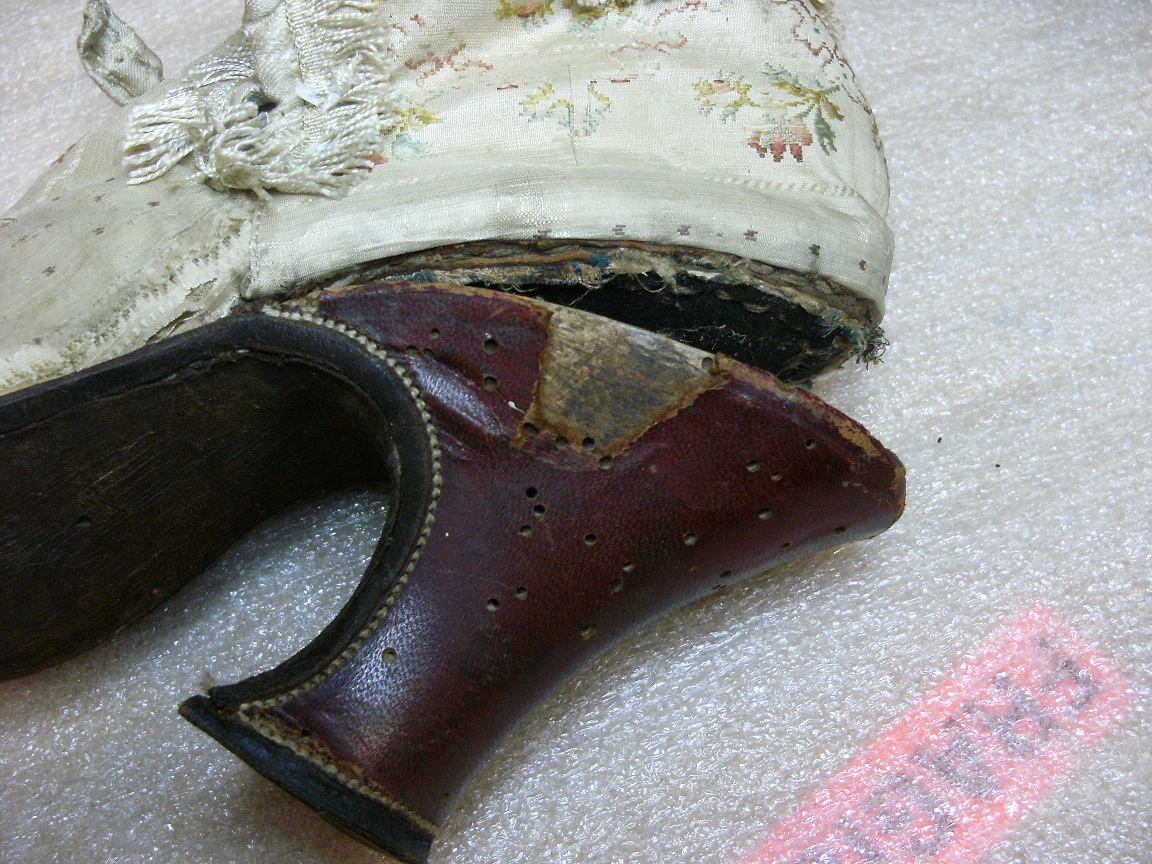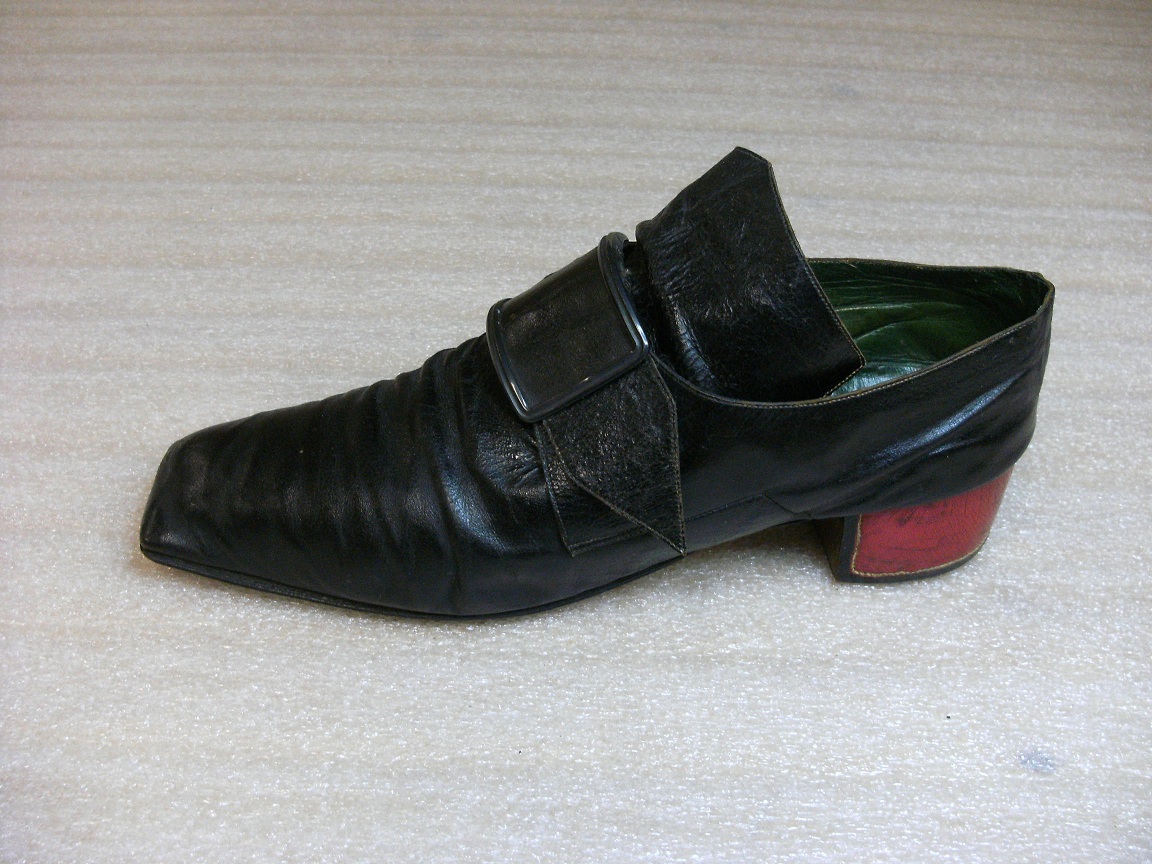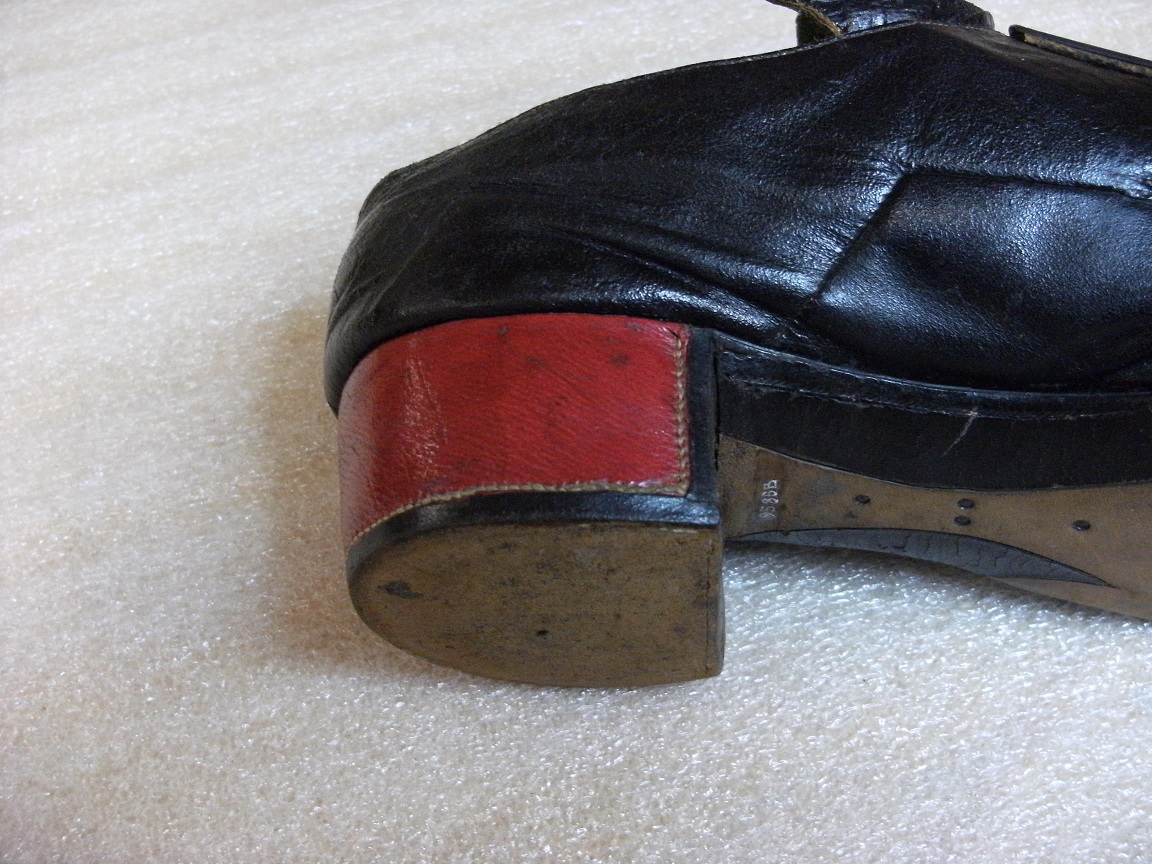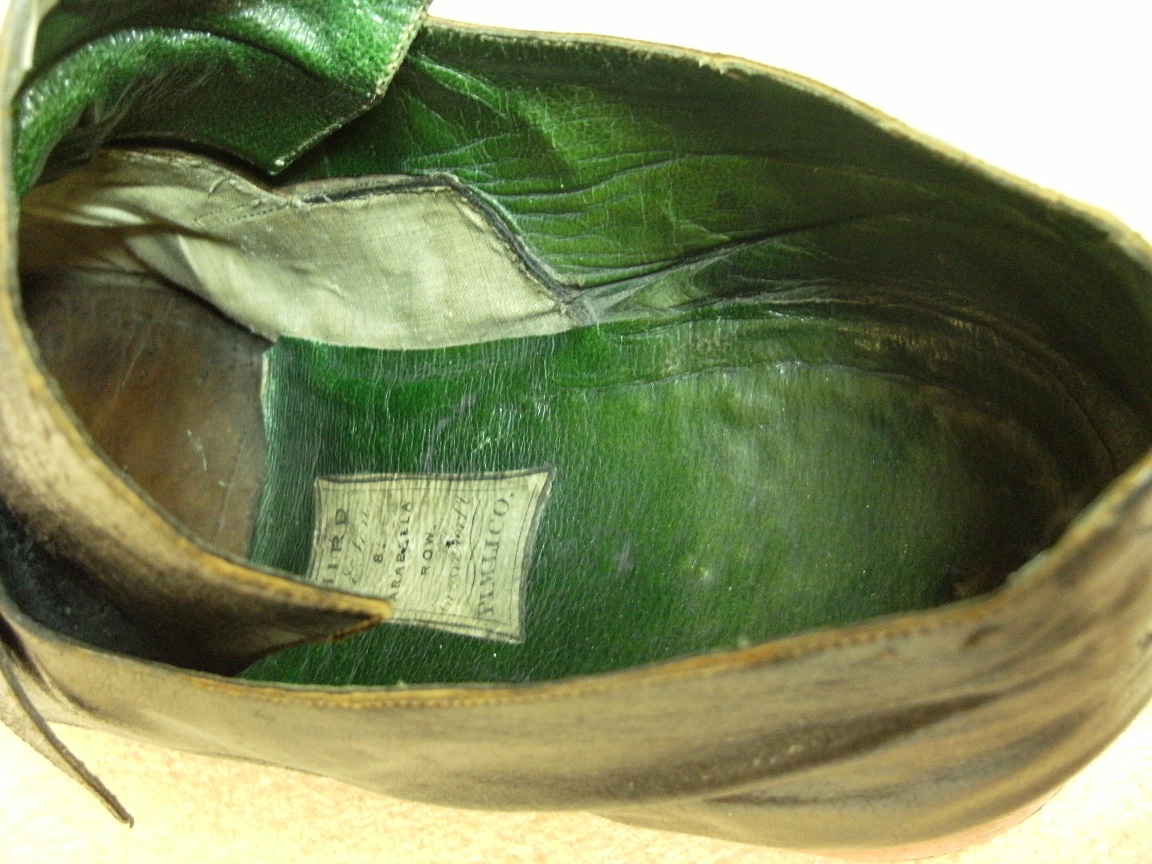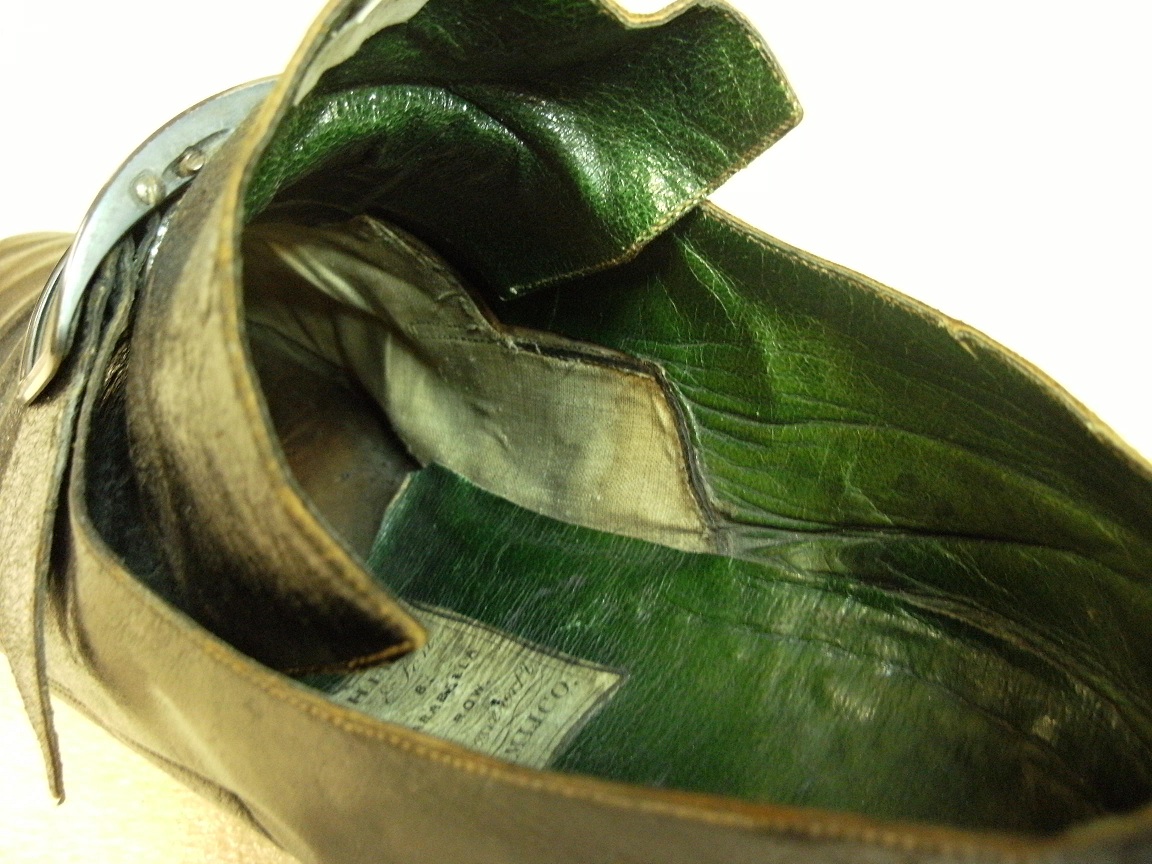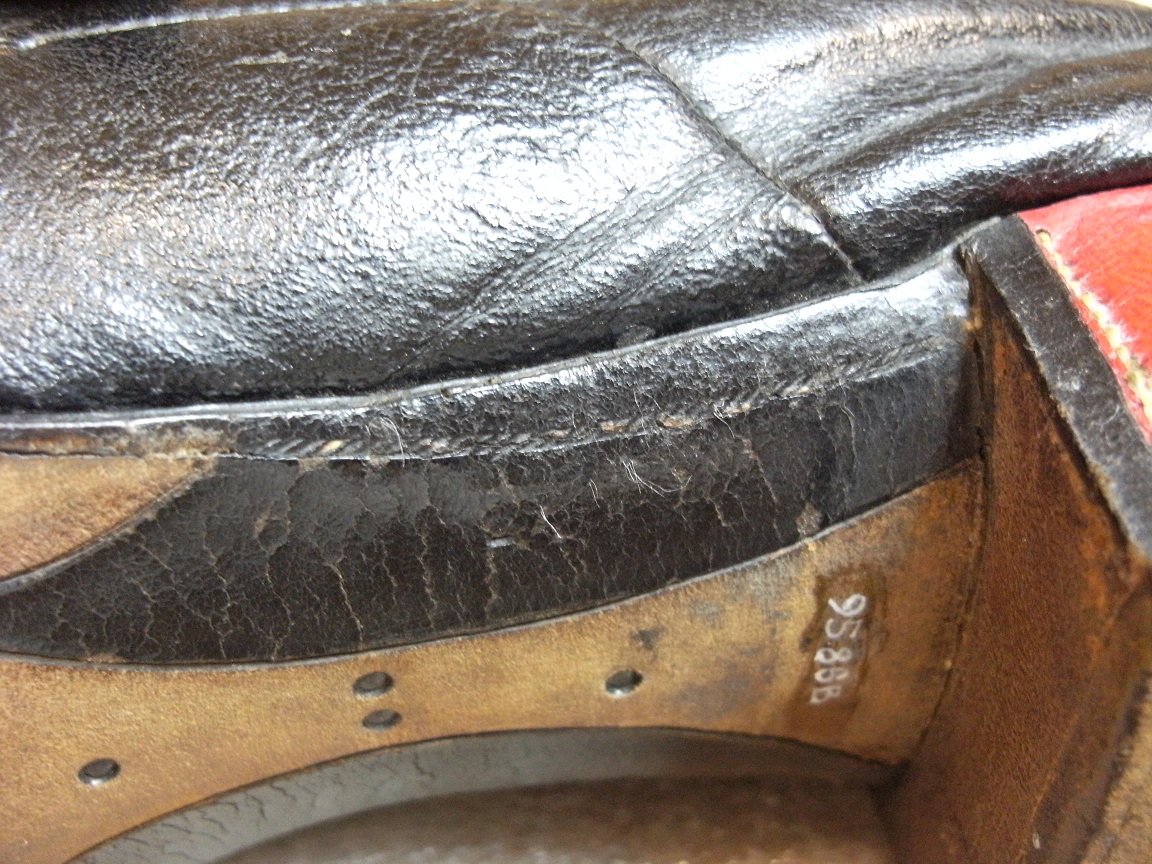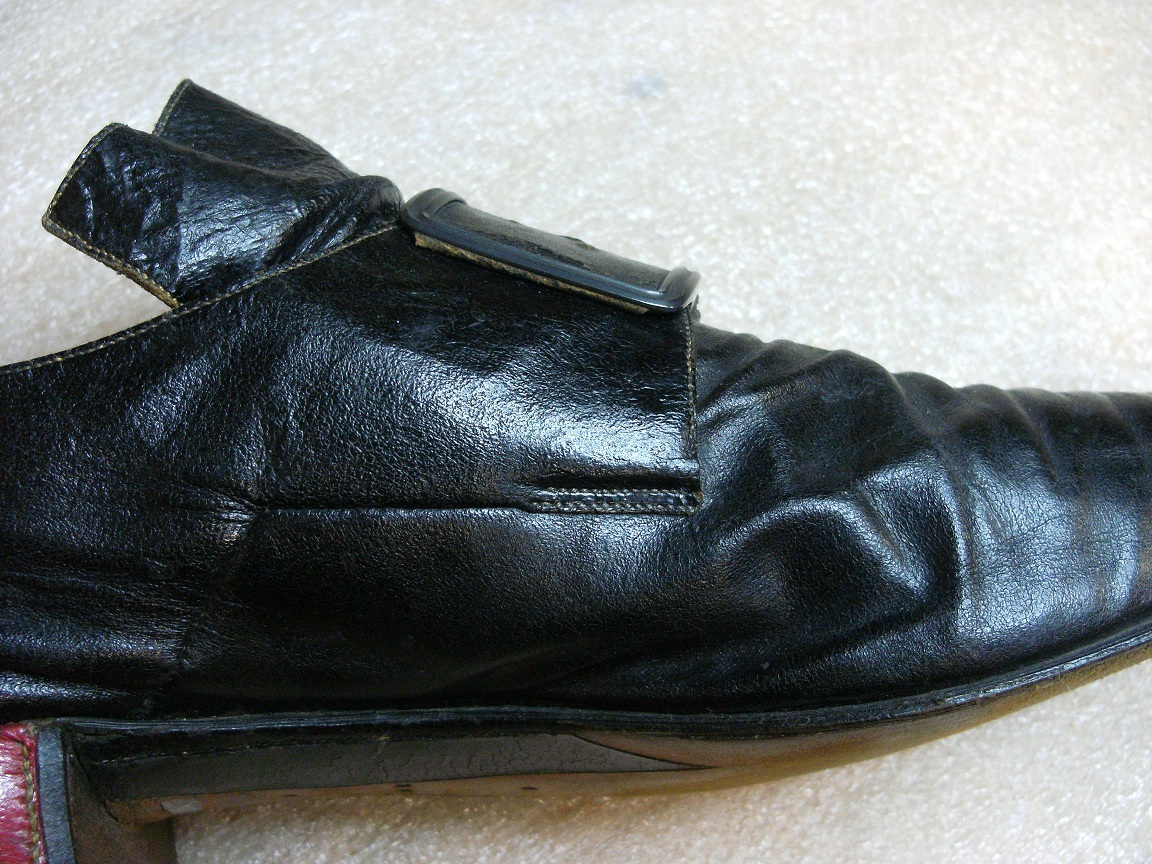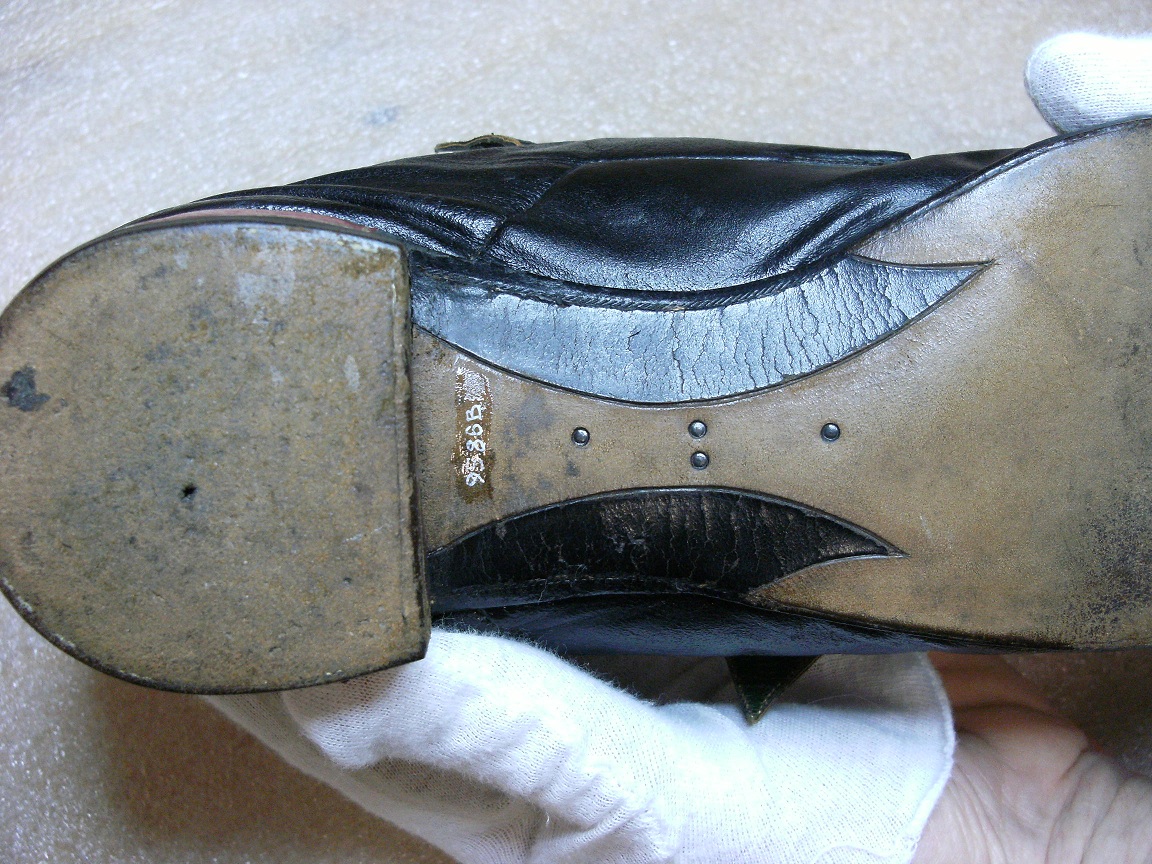Page 6 of 8
Re: "64 to the inch"
Posted: Fri May 08, 2015 11:18 pm
by dmcharg
In April, my wife and I traveled 1,000kms to the Powerhouse Museum in Sydney, Australia, as they currently have almost their entire historical shoe collection on display equalling some 800 items (Recollect:Shoes exhibition), and I spent 3 days drawing, looking at and photographing the footwear. Between Sandra and myself, we took around 300 photos. Of course the lighting is low to protect them (meaning focus was an issue), and unfortunately the shoes from the 16-1700's tended to still be in their storage trays, so you got a good look at their toes but couldn't see most of them from the side, which is a shame as they tend to be quite a different shape to later footwear.
They have a lot of prize work from the 1800's and some fantastic stitching. No 64spi but fantastic none the less. If my memory serves me correctly, they have a prize boot with a welt sewn at 48spi, and I think it's one of the ones I photographed. The display tags didn't have anything on them about the way the sewing was done. People tended to come in, almost as on a conveyer belt, down one side around the end, down the other and out. I collared quite a few (especially if I heard them commenting "How did their feet fit in those" when looking at prize/exhibition work that wasn't designed to be worn) and pointed out the fine pale lines on the welts/ heel covers, explaining that it was hand sewing and showing them closeups on the camera. "Wow!" tended to be the response and they went off looking closer at the shoes.
Anyway, enough of my rambling. Here are some of the pics, starting with the one I mentioned above. This boot is semi-miniture, a bit less than 8" long, therefore the area I counted the stitches in (second photo) is about 2 1/4" long. It was in a quite dark spot so I was glad the camera picked up some reasonable detail.
PHM Boot 1.JPG
114 stitches tween arrows.JPG
Cheers
Duncan
Re: "64 to the inch"
Posted: Fri May 08, 2015 11:42 pm
by dmcharg
The closest the shoes were to the glass was about 6" - 8" away, so no chance of getting a ruler etc up to them.
This one was a very narrow small ladies size shoe. Not the finest stitching, but very neat. And the to and bottom of the edge of the sole was beveled, as was the under-edge of whatever the red rand covered (insole?), meaning the awl didn't have to go through as much substance.
DSCN1755.JPG
DSCN1752.JPG
Re: "64 to the inch"
Posted: Fri May 08, 2015 11:45 pm
by dmcharg
And a partner pair for the previous.
DSCN1807.JPG
DSCN1805.JPG
Re: "64 to the inch"
Posted: Sat May 09, 2015 12:01 am
by dmcharg
There were quite a few miniature mules ranging around 4" up to about 7". This is one of the larger ones

DSCN1801.JPG
DSCN1802.JPG
That's all for now; I'd better get back to making shoes of my own.
Cheers
Duncan
Re: "64 to the inch"
Posted: Sat May 09, 2015 3:14 am
by das
Duncan,
Wow! Thanks for sharing these. We're only hearing the crickets from LACMA and my request for scale photos of their 64/inch prize-work examples. Am awaiting June's pix from the ones she was working with a few months back in Northampton mentioned above.
Re: "64 to the inch"
Posted: Sat May 09, 2015 5:20 am
by dw
Duncan,
thanks for posting those.
Is the prize work boot sewn at 48 spi the semi-miniature in the first photo? 114 stitches between the arrows but I have no sense of how far apart the arrows are.
I like the mules too. I wish I knew how to mount a heel like that. I despise the way modern "shoemakers" mount heels on women's work--with screws and nails and seemingly the most clumsy and in-artful methods (I hesitate to call them techniques) conceivable. From what Al has said to me, I gather that the only thing holding the heel on the mule is the stitching. Beautiful! Brilliant!
Re: "64 to the inch"
Posted: Sat May 09, 2015 5:45 am
by das
DW,
Yes, the wood heel is held on only by being encased or boxed-in in the stitched heel cover--no nails, pegs, etc. No direct attachment IOW.
(Covered) wood heels of this construction started for both sexes in the early 1600s, but by the middle 1700s (covered) wood heels became soley a women's fashion, the province of the "silk & stuff" shoemakers. As refined as this technique quickly became, and the use of textiles predominantly for uppers and heel covers, it's easy to understand why there're were "men's men" and "ladies' Men", the separate branches in our trade.
Re: "64 to the inch"
Posted: Sat May 09, 2015 6:00 am
by dw
das » Sat May 09, 2015 5:45 am wrote:DW,
Yes, the wood heel is held on only by being encased or boxed-in in the stitched heel cover--no nails, pegs, etc.
No direct attachment IOW.
(Covered) wood heels of this construction started for both sexes in the early 1600s, but by the middle 1700s (covered) wood heels became soley a women's fashion, the province of the "silk & stuff" shoemakers. As refined as this technique quickly became, and the use of textiles predominantly for uppers and heel covers, it's easy to understand why there're were "men's men" and "ladies' Men", the separate branches in our trade.
From the moment you told me that I have had this niggling notion that, at one point in time, "ladies' men" were the most skilled and masterful of makers esp. by comparison...dealing in fragile materials, difficult techniques and the finesse it takes to create some of the women's shoes I've seen.
Today, of course, the situation is completely reversed...or so it seems to me. With a few exceptions ("damn few...mair's the pity"), contemporary women's shoes are almost universally Rube Goldberg contraptions meant more to beguile the magpie eye than expressions of shoemaking's best.
IMO...
Re: "64 to the inch"
Posted: Sun May 10, 2015 5:56 am
by homeboy
Thanks for sharing Duncan! Truly enjoyed the pics!
Re: "64 to the inch"
Posted: Mon May 11, 2015 4:42 am
by dmcharg
G'day DW,
Sorry it's taken a bit getting back to you. I'd written up all of the below this morning when there was a glitch and I got logged out, losing it all

The distance between the arrows is about 2 1/4" - 2 1/2" long. The whole boot was a bit less than my handspan (8 1/2").
The earlier shoes were almost all still in their cardboard storage trays, making it impossible to see them from the side, which is a pity as their 16 -1700's examples were one of the big reasons I went up there as that era had quite a different profile to the 1800's and their heel placement was interesting. Here are some of them.
The first one is from 1740 -1749
1740-1749.JPG
DSCN2087.JPG
Metal Filagree.JPG
Cheers
Duncan
Re: "64 to the inch"
Posted: Mon May 11, 2015 5:06 am
by dmcharg
And here's a rare one out of it's tray, and sideways, from the early 1600's
1610-1620.JPG
Re: "64 to the inch"
Posted: Mon May 11, 2015 5:13 am
by das
You can see on that 1610-20 example above, (covered) wood heel making was still new and being figured out at that date. Note the clumsy fit inside the cover, plus the seam up the center back of the heel-cover. The forepart rand (v. welt) sewing (v. stitching) is not very fine either. No prize-work that one--all the "work" was lavished on the pierced goatskin uppers.
Re: "64 to the inch"
Posted: Mon May 11, 2015 5:15 am
by dmcharg
And another we found 'out and about' from circa 1780. The tag got in the way a bit.
DSCN2029.JPG
DSCN2033.JPG
This one's a bit blurry but gives a look at the sole and heel.
DSCN2034.JPG
The stitching tended to get finer in the 1700's ( compare with the 1600's shoe previously )
Cheers
Duncan
Re: "64 to the inch"
Posted: Mon May 11, 2015 5:22 am
by dmcharg
Hah, I was typing when you put your post up, Al, about the difference in work quality (stitching size) and the new fangled covered heels.
As an aside Al, what *is* the difference between 'stitching' and 'sewing'? Haslucks 1895 book that I have isn't very clear, and almost seems to swap at times (I was looking it up today trying to work it out).
Cheers
Duncan
Re: "64 to the inch"
Posted: Mon May 11, 2015 6:30 am
by das
Duncan,
Also note the women's shoes shift to mostly all turnshoe construction by the 1750s, the white rands were simply too much work, demanded too much skill, and the trend was for mass-production and wholesaling to colonies. The fancy textiles and embellishments (i.e. "lacing" and embroidery) for uppers cost more than leather too, so in order to keep the prices of women's shoes from out-pacing men's leather ones, the "silk & stuff" ladies' men skimped on the construction-time--expensive uppers, quick turnshoe construction with nicely covered heels--the best with the "white stitching" that framed the heel breast and top-piece.
Stitching v. sewing--These are terms like others that changed and shifted meaning in the trade in the English-speaking shoemaking world 1600-1900. In the context I used them above, "stitching" would have been done with the square-point stitching awl (very close-set slits), as opposed to with a "sewing" awl (round or ovoid holes spaced further apart).
Keep the shoe porn coming laddie!
Re: "64 to the inch"
Posted: Mon May 11, 2015 8:05 pm
by dmcharg
Thanks for the definition Al. Got that logged away now.
Not the phrase I'd use but, yes, as I'm able I'll be putting up more pics from the exhibition

. It takes quite a bit of time re-sizing and cleaning them up to fit them to the 500kbit limit. The original photos are around 9 -10meg.
Is this thread the right spot, or is there a better one? I suppose quite a lot of them, though not 64spi, are done at enviable fineness and accuracy.
Having lunch, then more sewing of shoes, so the next lot will have to wait a little.
Cheers
Duncan
Re: "64 to the inch"
Posted: Mon May 18, 2015 6:38 am
by lancepryor
Duncan:
Thanks for posting the pictures. Some nice sewing, I particularly like the green pair -- the welt/outsole stitching is lovely.
Look forward to seeing more as you get the time.
Lance
Re: "64 to the inch"
Posted: Thu Aug 13, 2015 1:29 pm
by fclasse
None of the pieces I'll be posting are really close to 64 to the inch, but since we're on the subject of shoe pr0n, I was fortunate a couple of years back to visit the Bata, which has a stunning array of 18th century shoes. I hope I don't overwhelm with the shoe pics, but I think that they're absolutely smashing. A new shoe in each post! The images are large, and I apologize for that. I've resized them to 50% (since the forum doesn't allow automatic resizing), but the link will take you to the full sized image.
I admire the clean welt stitching and red leather, and was a bit surprised to see the tacks in the top piece, possibly from conservation. The silver embroidery on the leather is also very neat - wasn't expecting to see that.
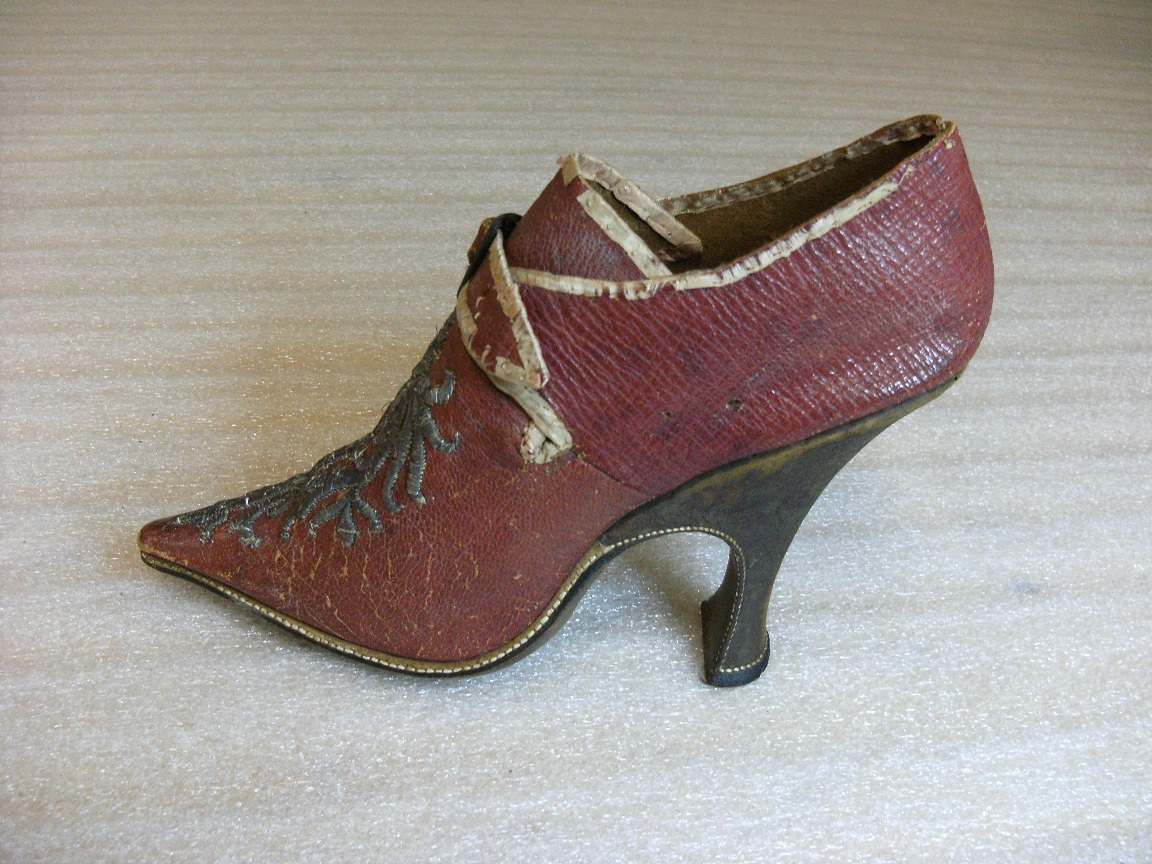
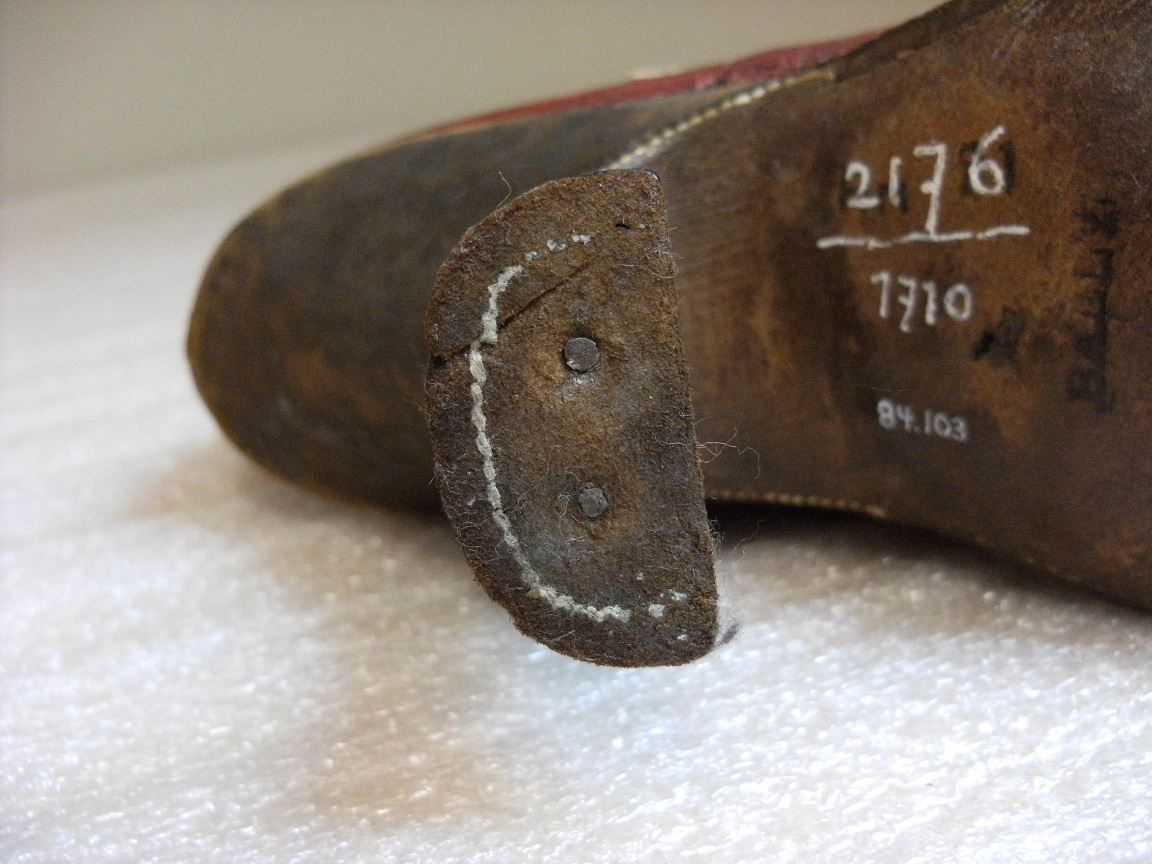
Re: "64 to the inch"
Posted: Thu Aug 13, 2015 1:33 pm
by fclasse
This one is definitely pretty fine, though I didn't think to measure - cloth of silver strip makes a stunning impression, as do the appliqued bands.
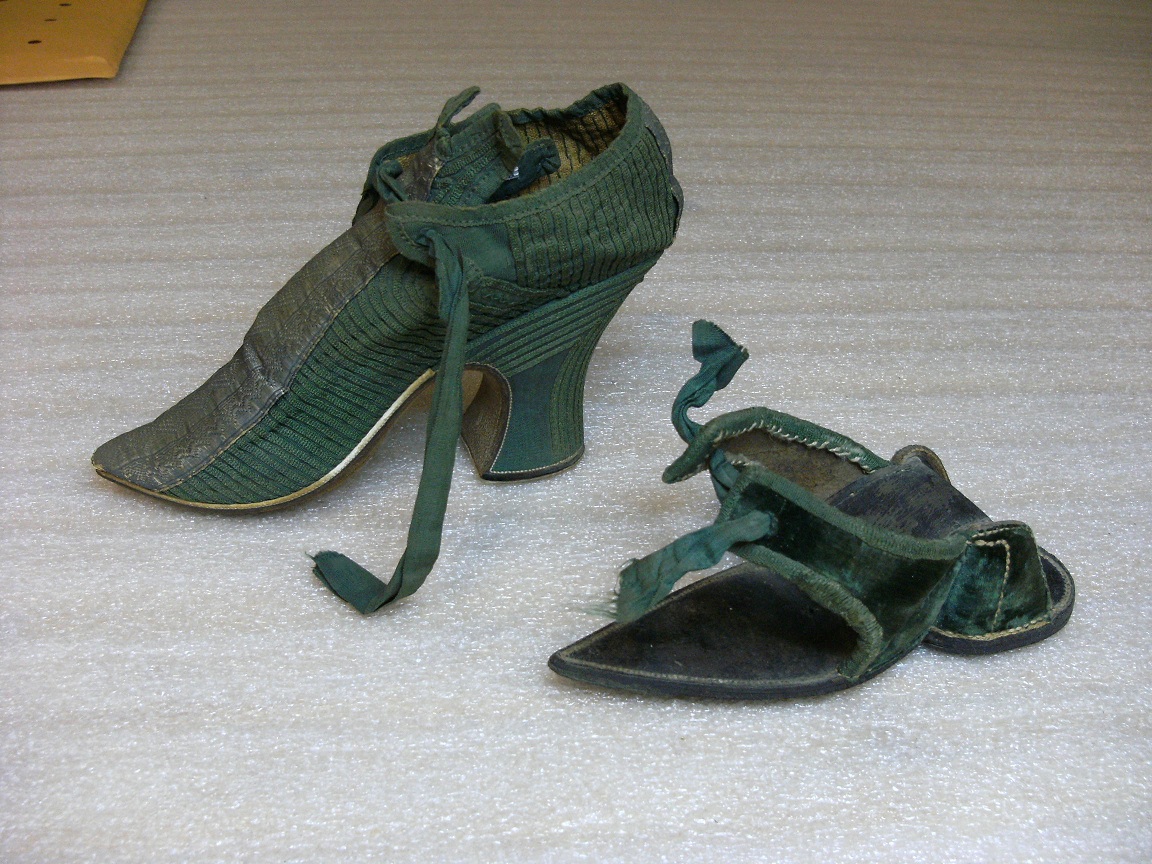
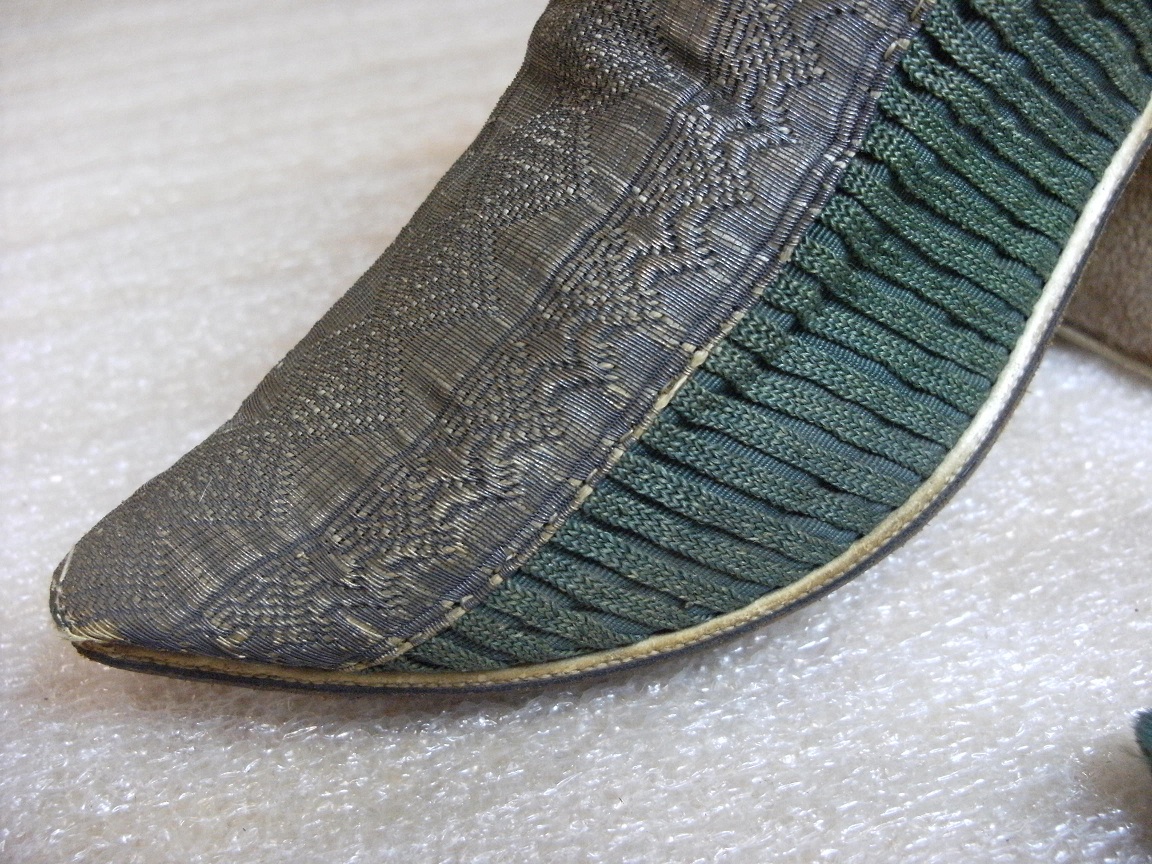
Re: "64 to the inch"
Posted: Thu Aug 13, 2015 1:45 pm
by fclasse
Re: "64 to the inch"
Posted: Thu Aug 13, 2015 1:56 pm
by fclasse
Re: "64 to the inch"
Posted: Thu Aug 13, 2015 2:44 pm
by das
Lovely photos and thanks for sharing some "eye candy" for us history folks. If you want to shoot 64 stitches to the inch sole stitching, get over to LACMA and ask to see theirs, and share those photos please. I think we posted the LACMA accession #s above someplace, or was it the ones from Northampton Museum? The photo links you posted did not have any BSM cataloguing info, but I thought I'd point out the man's shoe with the red heel cover, green lining, and label inside is a mid-19thc "theatrical"(?) repro, not as old as the style they are trying to recreate.
Re: "64 to the inch"
Posted: Tue Aug 18, 2015 9:54 am
by fclasse
I'll definitely have to head over to LACMA the next chance I'm in Southern CA. Interesting info on that repro shoe - I definitely thought that the construction was a little odd compared with typical 18th century work, but it was nestled amongst all of their other amazing 18th century shoes. I figured I hadn't educated myself enough, but it pleases me that my "spidey sense" was tingling. And indeed - not all of them had accession numbers, which I thought odd, and I took pictures all over. I do vaguely recall seeing some labels and slips of paper in each of the boxes, which may have had the information, but I neglected to take record of it at the time.
If I could, please see another "odd" shoe that I found there with pics below. The construction is unusual, with stitching through the sole and the final lift held on only with tacks. I had thought it a theatrical shoe at the time considering the vamp coloring and pink (!) heel covering.
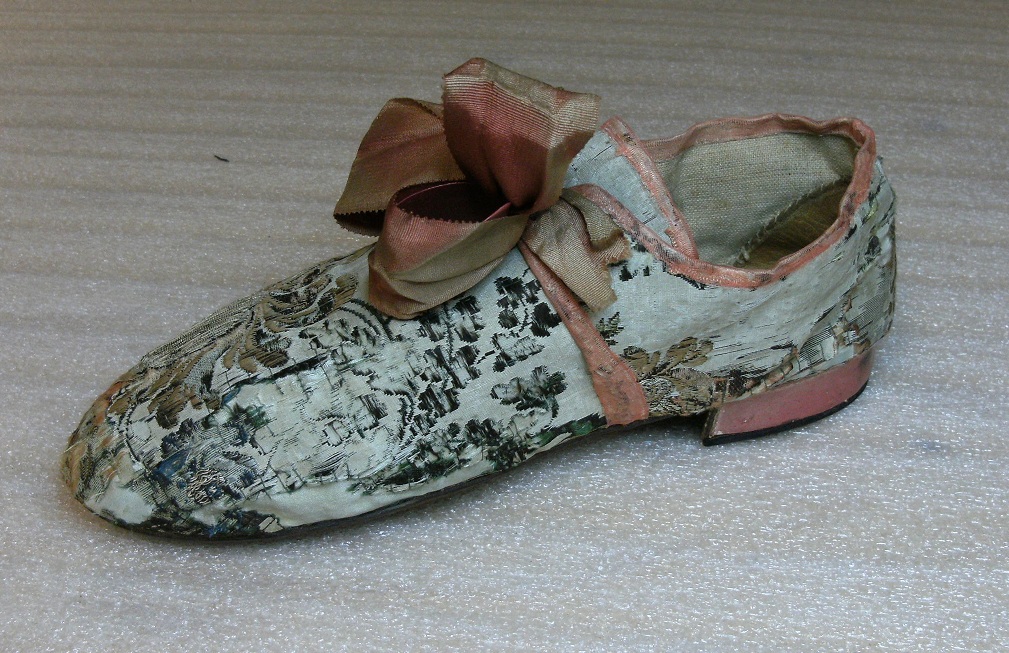
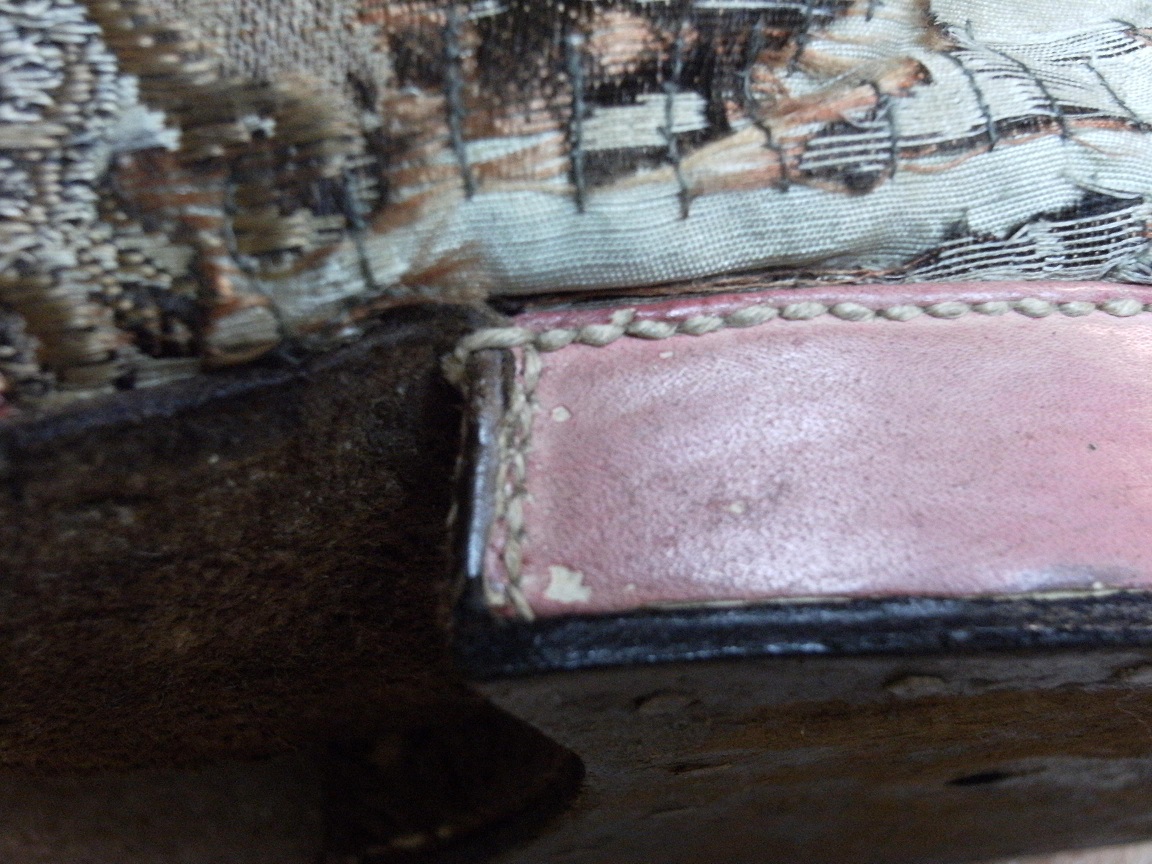
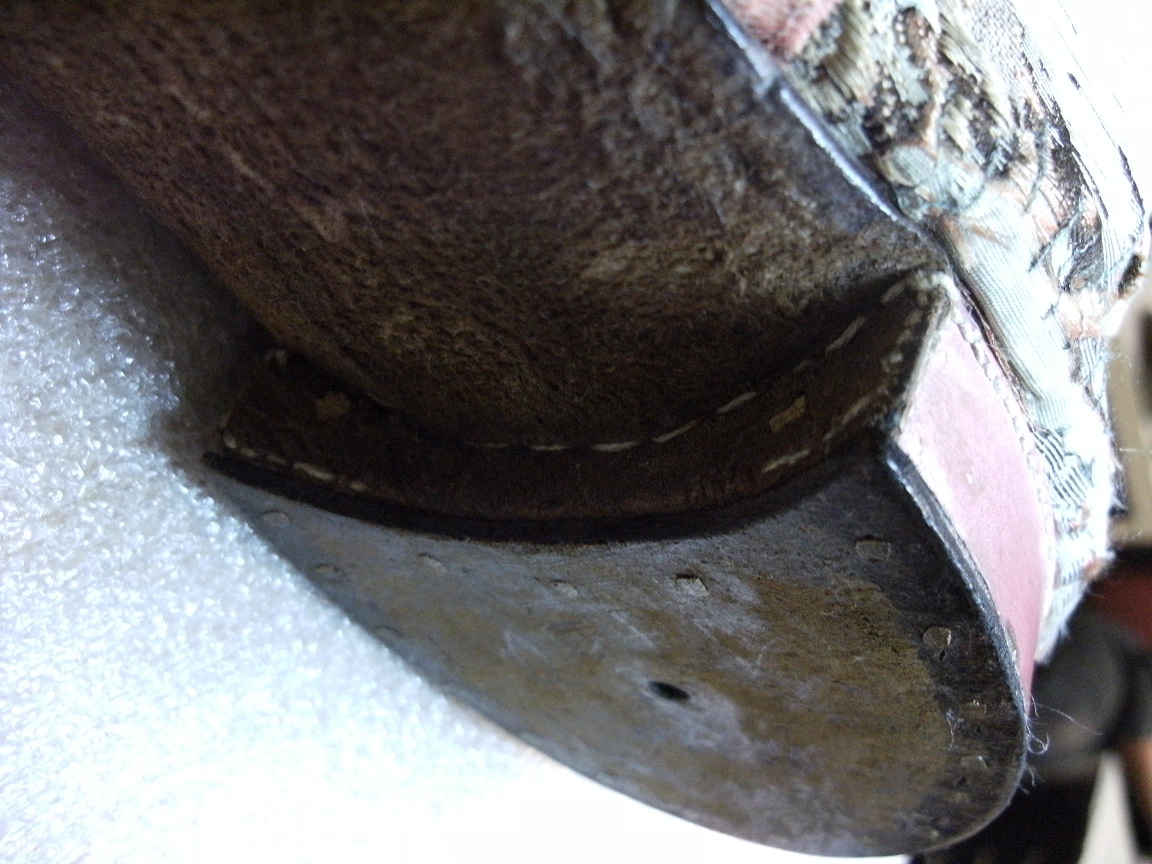
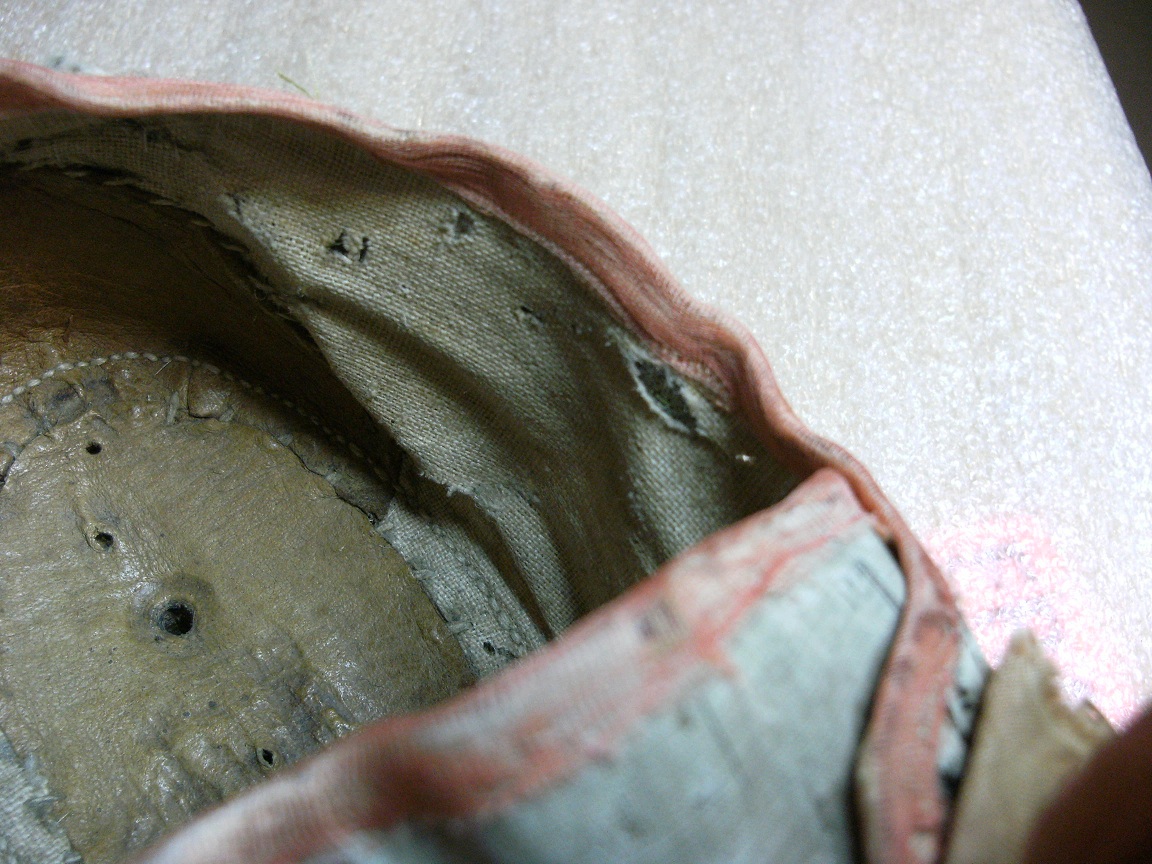
Francis
Re: "64 to the inch"
Posted: Tue Aug 18, 2015 11:12 am
by dw
Francis,
I wanted to chime in here and say how much I appreciate you posting these photos and how much I appreciate your interest in this type of work and these techniques.
I have often thought that sewing the heel on is the most elegant way to make women's high heeled shoes. I know you have done some of this yourself.

I wonder if you would be open to doing a photo essay on putting together a shoe like this? I saw something similar on your website but would like to see it on the CC (for archival purposes, if nothing else) and would like to be able to learn more and "interrogate" you (

) about your approach.
Re: "64 to the inch"
Posted: Wed Aug 19, 2015 5:47 pm
by fclasse
DW,
I'm flattered by the compliment, and I'd be happy to oblige...after I make about two dozen more pairs of 18th century shoes! As far as the interrogation, I think that we all need to be open to new techniques and criticism, as there are really three venues to improving one's craft: repetition, research, and learning from those more skilled and practiced. Ask me again in a few years. =)
Francis




